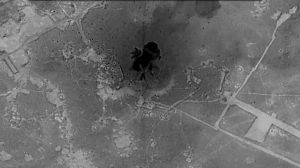A very Pakistani coup
Five years after the coup carried out by the Pakistan army to save its corporate interests and keep the army chief in his post, the men...

Five years after the coup carried out by the Pakistan army to save its corporate interests and keep the army chief in his post, the men who did the coup at their own initiative have been quietly retired. Not only was a legally and democratically elected political government, with an overwhelming majority, overthrown, the army set about marginalising the two main political parties and filled the resulting political vacuum by bringing in religious parties from their normal operating areas in the streets into parliament. A new form of what can only be termed as a 8220;military democracy8221; came to be established on customs and patterns more derived from the feudal age than that of modernity. The recent firing of a ballistic missile, with little military or political utility, was in the nature of celebrating the fifth anniversary of a militarised state.
Pakistan was on a rapid downward spiral with its economy in deep trouble five years ago. It was also isolated internationally. The 9/11 strikes changed this situation dramatically. It helped Pakistan to suddenly gain proximity to the United States 8212; eventually it even became a Non-NATO Ally 8212; and obtain sophisticated weapons in the name of fighting America8217;s war against the Taliban and Al-Qaeda, the very forces that Islamabad had created and nurtured for its own foreign policy and ideological goals. An incipient economic recovery has also helped, thanks to a good monsoon, remittances from abroad in the wake of 9/11, substantive debt write-offs, and foreign aid inflows. But Pakistan8217;s 53 million poor have not gained anything from the doubling of the country8217;s per capita income in dollar terms, which the government announced recently. Old problems have also not gone away. For instance, Islamic sectarian terrorism within Pakistan has been escalating. The recent change in prime ministers is also indication of disquiet at the highest levels. It was seen as necessary in view of the difficulties Musharraf has had to face from even the docile Mir Zafarullah Khan Jamali as prime minister and hence the twisted method of instituting the change.
There is an uncertain future ahead of Pakistan, and Musharraf has used it to convince his people that his continuation in both posts 8212; as head of state and army 8212; is essential. But as the Pakistani newspaper, The Nation, pointed out yesterday, 8220;One-man rule, no matter how benign, can never be a substitute for democracy.8221; But the sceptics would say: when was Pakistan a democracy anyway?
- 01
- 02
- 03
- 04
- 05































